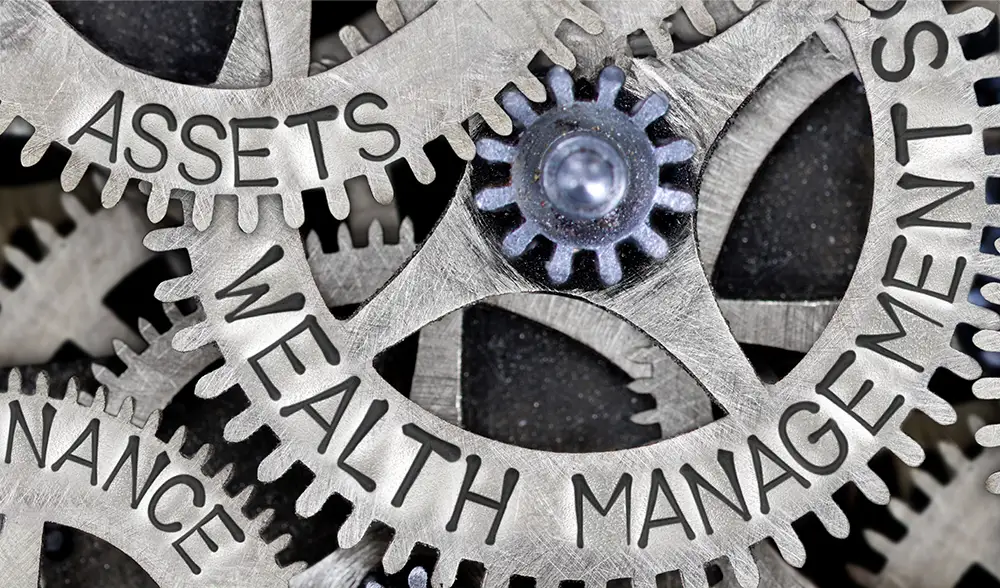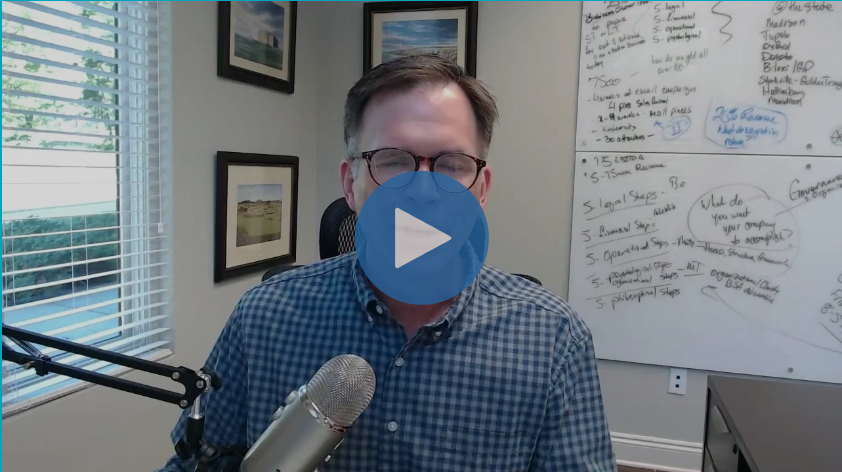Why is estate planning important? (+ examples)
If you’re reading this article, I’m genuinely glad you’re here. Maybe you’re new parents who are thinking for the first time about how you safeguard...
4 min read
 Chris McAlpin
:
Jan 31, 2024 7:34:08 AM
Chris McAlpin
:
Jan 31, 2024 7:34:08 AM

We’ve said it before, but I’ll say it again — estate planning as a topic isn’t exactly a fun one, as it requires us to consider our own mortality. Uncomfortable as it may be, however, the purpose of an estate plan is too great for it to be set aside, deprioritized, or left incomplete.

You may have a legacy you want to cement. You may have family, children, and other loved ones you want to guarantee are cared for after you’re gone. On the other hand, you may have assets you wish to protect from family members — a spendthrift daughter or dominating son (in-laws included), for instance, who could disrupt the intended inheritance of a grandchild or others.
🔎 Related: How much does estate planning cost? (tips + examples)
Whatever your circumstances may be, the purpose of an estate plan is to establish a legal way to pass your wealth and assets to the people you choose. If you don’t invest the focus, time, and resources to create an estate plan appropriately and thoroughly, the probability of your wishes being followed are near (or at) zero.
“I’ll just write out a will, and the judge will know what to do,” is not a viable strategy. If what you’ve laid out is not legally sound, it doesn’t matter how well a judge knows you or understands your intent.
Your intentions and wishes will be superseded by what is legal.
Now, I know some of you might still be shaking your head, thinking that an estate plan isn’t a necessity. It’s part of the reason why I hate the word “estate” when used in this context. When you hear it, there’s a good chance that visions of large, Bruce Wayne-esque mansions surrounded by walled gates come to mind.
Certainly, there are some folks out there who have estates that look like that, but that is very much the exception, rather than the rule.
Your estate simply includes the home you own, any money you have in your investment accounts, family heirlooms, and so on. Sure, in some cases, putting a sticker with someone’s name on a family photo is enough to make sure it ends up with the right owner, when the time comes. But if it’s an heirloom of actual worth (art, antiques, etc.), that approach won’t cut it.
🔑 Free resource: Financial planning template for individuals and families
Even if you don't consider yourself someone possessing “wealth” or something that would qualify as an “estate,” you need an estate plan. Each of us has something to leave behind.
On the other end of the spectrum of concern, you may be worried your family will be on the hook for a hefty estate tax bill upon your passing. Even if that is the fear lingering in the back of your mind, you can end up creating significantly larger (and more costly) problems for your heirs if you fail to make a legally vetted estate plan.
Before I go any further, I want to note here that what I’m sharing with you is purely for the benefit of your education and should not be considered legal advice in any way.
Technically, however, the short answer is yes, each of you has the ability to create an estate plan on your own. But just because you can doesn’t mean all of you should. If you have what is considered to be a “small” estate (which is defined by the state in which you reside), you may be able to do so on your own.
🔎 Related: How to choose a financial advisor (tips + questions to ask)
For example, if you’re a young couple with very little in the way of assets, you’ll likely want to start with a will — and there are plenty of free online resources available to help you with that. Of course, you will always assume some risk when you choose the DIY route, without the oversight or input of an estate planning professional.
When it comes to “free” estate planning solutions, you get what you pay for, if you catch my meaning.
Personally (and professionally), my blanket answer to this is “always.”
Estate planning is the ultimate example of when you need to measure twice and cut once, because you can’t reverse mistakes in an estate plan. No matter how costly (e.g., steep tax bills) or unintentionally harmful (e.g., accidental disinheritance, loss of property) they may be, your estate plan is a bell that can’t be unrung once it’s in motion.
This is particularly true since I know some of you folks out there are pretty humble. You may be underestimating the value of the wealth and assets you possess and, as a result, underestimating your need for professional assistance with your estate plan.
🔎 Related: Investing after retirement (tips + examples)
I remember this one sweet lady in our church who owned land that had been in the family for generations. Due to an unexpected change, the land itself increased in value significantly over the course of 18 months.
I remember her saying to me, “Chris, I don’t want to be rich!”
I replied, “But Judy, the IRS says you’re rich.”
Humility is an admirable virtue. But when it comes to your estate, I encourage you to err on the side of caution by consulting with a professional.
If we want to get more specific, any time you’re introducing a new layer of complexity to what your wishes are, you will want to work with someone.
For instance, if you’re making plans that involve multiple generations (children and grandchildren), you will want to work with an estate planning professional. If you’ve had multiple marriages, you will want to work with an estate planning professional. If you own the land under your feet, you will want to work with an estate planning professional; heck, that dirt may be one valuable asset.
There’s no way to sugar coat this, so I’ll just state the plain truth — we all have a date with death. Take advantage of this moment to define your wishes and develop a legally sound estate plan to guarantee they are followed.
🔎 Related: Tax savings strategies for high-income earners (+ examples)
Yes, this process can be emotional and uncomfortable. Trust me, none of us relishes this activity, but it is a discomfort I strongly encourage you to lean into. Remember, estate planning is a legal process to ensure your assets are passed down to the people you love in the way you want. The cost of sidestepping the creation of an estate plan is too great, and those you love are the ones who will have to pay it.
Your estate plan is your last chance to say and show how much you care for your loved ones. Don’t squander this opportunity to set them up for success, in whatever way makes the most sense to you. And I encourage you to include in writing the meaningful faith-based truths that you want your family to inherit as a part of your legacy. This process is not all about financial wealth, but remember it is also about financial wealth.
And when in doubt, talk to a financial or estate planning professional — you don’t have to do this alone.

If you’re reading this article, I’m genuinely glad you’re here. Maybe you’re new parents who are thinking for the first time about how you safeguard...

I’ll be honest, I get excited when folks like you come to me with questions like this. You’re at a point in your life where you are thoughtfully...

Let’s be honest. If you’re here to learn about estate planning costs, we’re about to walk into a conversation that no one really wants to have. It...
